So much of this blog is focused on achieving excellence we sometimes lose sight of the fact that many businesses continue to come to us because they are suffering from excessive negative Google reviews and a resulting low Google score. Here we describe the plan of action to be adopted in such cases.
The definition of a 'low Google score'
Back in the early days of reviews any score over 4.0 was considered pretty acceptable. Then businesses - sometimes prompted by the Google filter (that enable searchers to exclude businesses scoring less than 4.5), but more often by their competitors' success in achieving very high scores, legitimately or not, began to strive to achieve a score as close to the 'Perfect 5.0' as possible.
Legitimately?
Many businesses continue to invite only selected customers to write reviews. This is contrary to the CMA regulations and therefore UK law. If a business fails to comply with the CMA regulations, which specifically dictate that if it invites any reviews whatsoever it must allow all customers to write a review as well as allow the customer to choose the timing of writing that review.
The cause
Businesses with bad CRM rarely approach HelpHound, so we will discount those where the score is an accurate reflection of shoddy customer service and concentrate on good businesses that suffer from a negative impression created by their Google reviews (and score).
For well-managed businesses that languish when it comes to Google reviews - there's an example above - there is usually one overwhelming cause for such disappointing results: lack of engagement. The business has yet to find a way of safely inviting Google reviews, so it just sits back and suffers the dilution of inbound enquiries caused by the low score and negative review content (worse: we see instances where businesses go into denial - attempting to convince themselves that their score and the underlying reviews have no impact, against all the evidence to the contrary - and see 'Further reading' at the bottom of this article).
The key word here is 'safely'. Many businesses, especially those in the professions and service industries, deal in complex matters - finance, health, legal and related areas (estate agency or mortgage broking, for example) - where misunderstandings not on can but will occur.
So what is the difference between the example above and this one (both great doctors - we know them both, but only one is currently a HelpHound client)?
We gave you a clue in the last line, but let's break that down.
Most business's first reaction when we suggest that they will need to enable all their customers to write a review at a time of their own choosing varies from extreme scepticism to abject horror. The common verbal response is 'What? All of them?'
All of them
Yes. Why? Because the law says so. The law - in the guise of the the CMA regulations - specifically states that if a business proactively invites reviews it must allow all of its customers to write a review. The key word here is 'allow'. The business is not forced to email every customer to invite a review. This button...
...on the business's website makes the business fully legally compliant. But we go further: we recommend all our clients invite all their customers/clients/patients to write a review - to their websites. Why? We have alluded to the answer already - because they are involved in complex issues and people will often write factually incorrect and/or potentially misleading statements in their reviews.
Writing the review to the business's website - through an independent moderator (HelpHound in the example above) - allows a dialogue between the moderator, the business and the reviewer, where errors of fact and misleading statements can be corrected before the review is published.
This could never happen if the business were to invite their customer to write a review direct to Google, and it certainly can't happen when a mistakenly unhappy customer reports posting a review to Google direct. Give that unhappy customer the option of writing their review to your business and most will take it; the result: an unhappy customer made happy (more often than not) and a customer retained for the business.
So we can stop negative reviews?
Absolutely not. First, that would be illegal - the reviewer must always retain the right to have whatever review they wish published. But most reasonable people, when they are gently informed that their review is either factually incorrect or has the potential to mislead future people looking to use the business, are only too happy to correct their original review. It's called moderation.
So, in the first example - where the patient is complaining about the doctor's reception - the review would stand? Yes. But the surgery would have the confidence that on important medical matters moderation would operate, and that confidence would lead them to be proactive in inviting reviews. The surgery in question has over 1200 patients - currently, their entire online reputation is being dominated by just eight one-star reviews. And, make no mistake, rightly or wrongly, their score of 3.3 is putting new patients off.
So we've reassured the business that their reputation won't be put at risk by inviting reviews to their own website. What next? Once the review is published on their website the moderator automatically requests that they copy their review across to Google. With a well-run business this usually results in 50% of reviews going on to Google. Here's a good example...
You can see the number of reviews - 418 - on their own website showing in 'Reviews from the web' in any relevant Google search. Here they are on that website...
Any other benefits? Well, Google scores every website in order to rank them in local searches. About 15% of that score is allocated to sites showing their own reviews, so this is a distinct possibility...
Top of the Google 3-pack, top of organic search and their star rating and score drawn from their own reviews (not their Google reviews) showing right under their listing.
Time to embark on proactive professional review management? You bet.
Further reading

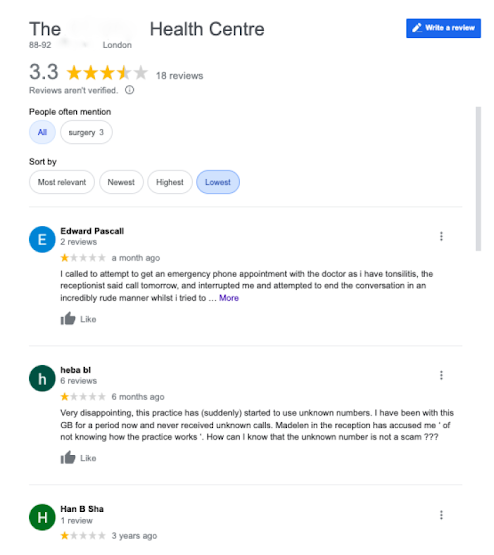
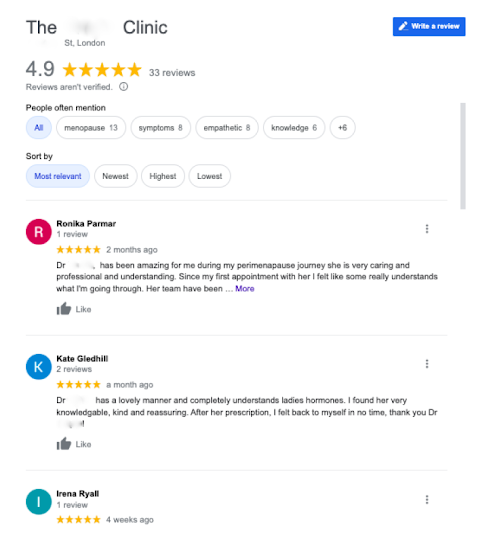
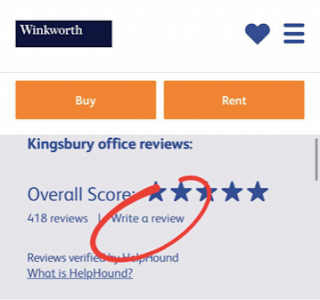
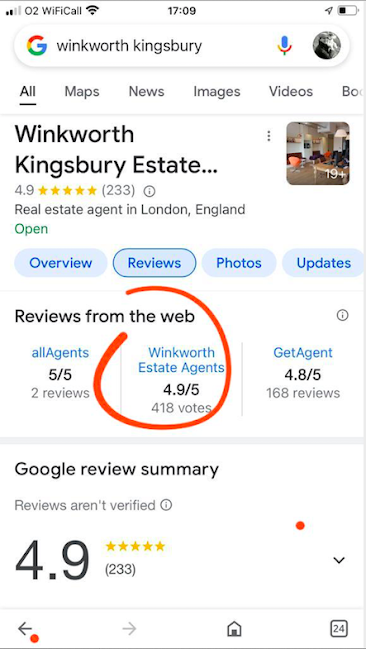
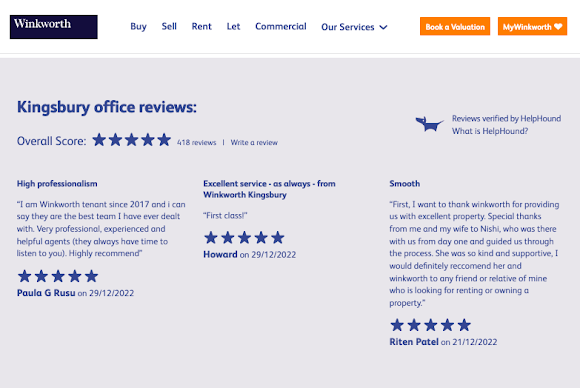

No comments:
Post a Comment
HelpHound is all about feedback, so please feel free to comment here...